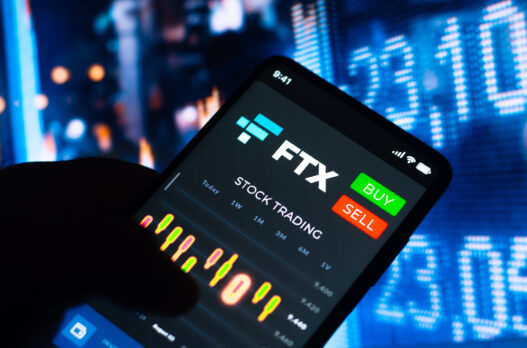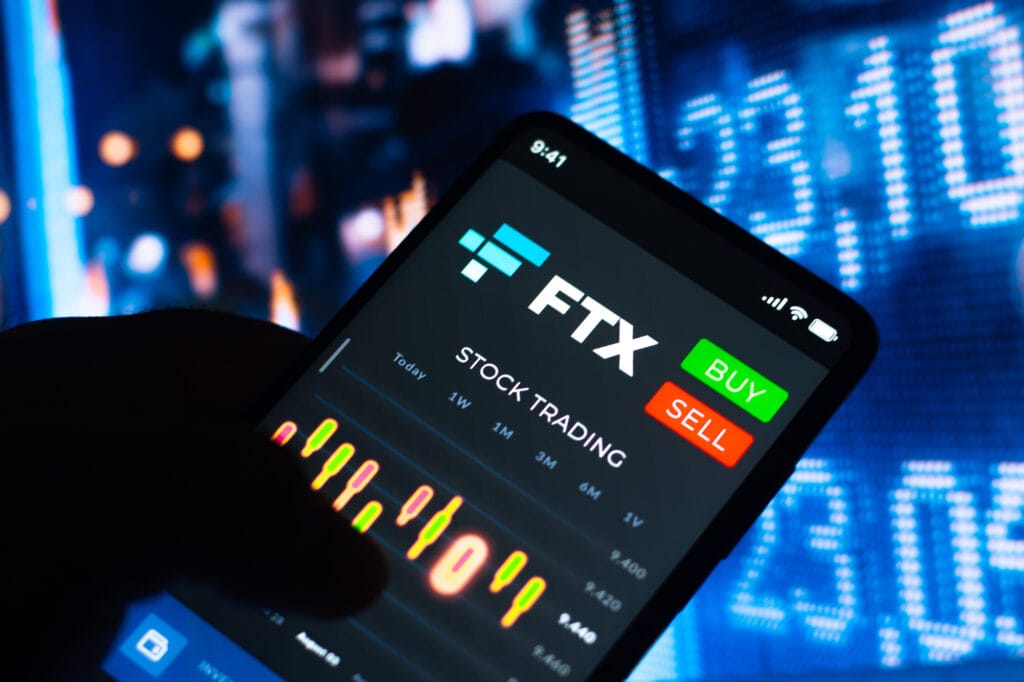FTX: A Cautionary Tale about Due Diligence, Trust, and Balance Sheet Analysis
Before it became a scandal, FTX was a cryptocurrency exchange founded in 2019. The relatively new company was founded by a 30-year-old MIT graduate named Sam Bankman-Fried, or SBF as he’s known online. The three initial nicknames should have been the first clue that he was up to no good. He worked a few years at a trading firm, Jane Street Capital, trading ETFs before starting his own firm, Alameda Research, in 2017. And that’s where this all starts.
Alameda traded cryptocurrency using arbitrage, market making, and trading volatility. SBF’s most talked-about arbitrage trades involved the daily movement of up to $25 million. The firm was taking advantage of the higher price of bitcoin in Japan compared to the price in the US, striking a combination of matching deals to capitalize on the difference. He was having great success but soon grew envious of the exchanges his firm was using to execute the trades because they were also earning a fee for facilitating the transaction.
So, he created FTX, headquartered in the Bahamas, and FTT, FTX’s own cryptocurrency. Offering FTT was another way to offer “equity” in FTX as a company without giving away equity. If the exchange is doing well, the token should also increase in value. Exchanges encourage users to use their tokens to get access to cheaper fees, to move funds quicker, and to take advantage of other VIP offerings. But remember that the tokens and initial values are made out of thin air. FTT was completely centralized and controlled by FTX. And Alameda Research was one of the largest holders of FTT. Since the company’s shared founders, Alameda was able to purchase FTT at a very low price.
The Rise of FTX Cryptocurrency Exchange
As deposits started to flow into the FTX exchange and more and more users started using it, FTX became extremely popular. After being in business for just a few years, it boasted 1 million users on its platform in early 2022. FTX’s value increased greatly in that quick period of time. Around that time, FTX raised $2 billion at a value of $32 billion. They raised money from Softbank, BlackRock, Tiger Global, and even the Ontario Teachers’ Pension Plan. It used that money to sponsor the Miami Heat, and the MLB and pay Tom Brady and Larry David for commercials. They attempted to become the mainstream crypto exchange as Coinbase and Crypto.com battle for customer transactions. And the use of sports figures, naming rights, and jersey patches all played into the scheme of gaining the public’s trust.
The Crash & Burn of FTX
But one thing they couldn’t control was federal rate hikes. Once money became more expensive and crypto started to lose value, hedge funds like Alameda Research were hit hard. But most funds don’t have access to billions of customer deposits from an exchange.
Alameda put up large quantities of FTT as collateral for a loan from FTX. FTX lent Alameda customer deposits (likely between $5 – $10 billion) to plug the hole in Alameda and allow it to continue trading again without anyone noticing. But as rates continued to increase and the entire crypto industry continued its downtrend, Alameda was unable to recover.
The word on the street was out about FTX’s practices, and a large FTT holder sold about $500 million worth of the token all at once. And since nothing in crypto is private, it was news immediately, and the FTX withdrawals started very quickly thereafter. FTT plummeted and lost 90% of its value in one day. The FTT token made up half of the Alameda balance sheet, so the rapid decline in value took away SBF and FTX’s only option to get quick access to cash to fund withdrawal requests.
Customers tried to get their money out of FTX but couldn’t and still can’t. FTX couldn’t handle the withdrawals; they didn’t have their customer’s money, they gave it away to their sister company to play with.
What Can We Learn from the FTX Scandal?
The company is insolvent. It owes $5 – 10 billion to customers and filed for bankruptcy, along with 130 other affiliate companies. It is heartbreaking news because that $10 billion was real people’s money. The life savings of a family. The retirement fund for someone. And there is very little chance that they will see even 10% of the funds back.
But if nothing else, we can’t ignore what happened with FTX because it’s also applicable in everyday business life. It’s imperative to do your due diligence when entering into business deals. Why could FTX raise so much money if they were so upside down and their business practices were so intertwined and related to Alameda? It’s so crucial to learn what to focus on when evaluating another business’s financial statements and the story they can tell. Let’s look further into lessons from this tragedy that we can apply to everyday business.
Due Diligence
FTX was raising investor money from the early days of the business. Hundreds of presentations were done for potential investors. So why did no one see anything that made them question SBF and FTX?
Investors were just afraid of missing out. FTX had celebrities, its name on jerseys and stadiums. Other big-name investors had already gotten in on earlier seed rounds. No one looked too closely at any financials because they only cared about not missing out on the next thing.
Had they looked closer, they would have realized that FTT was a centralized cryptocurrency that provided no utility, and its value was based purely on the reputation of SBF and FTX.
There was always an opaque relationship between Alameda and FTX. No one was ever quite sure exactly how much oversight and control SBF had in Alameda, but there were rumors that Alameda used trade data from FTX to front-run trades.
And when considering the fact that the company they were investing in, FTX, was loaning money to Alameda, whose collateral was a token that could be worthless in a day, they should have asked some more questions.
There are ways to confirm exchange holdings and to understand if the exchange was holding what their customers had deposited on the platform 1 to 1. And more importantly, there should have been just as much scrutiny given to the liabilities that were owed too. For example, their bitcoin liability alone was $1.4 billion, and they had 0 bitcoins. Easily provable and inexcusable.
Luckily, most of us won’t ever have to experience the stress of making a billion-dollar deal, but when going into a business contract, a purchase, a partnership, or a high-stake decision, verify everything for yourself. So do your due diligence, ask every question you can think of, and don’t enter into a deal or an agreement without knowing all of the facts. If you assume things or take someone at their word about how things operate, the management, or customer behavior, you are gambling that your assumptions are correct.
Trust
The reason that so many families lost so much money at the hands of SBF, FTX, and Alameda was due in large part to trust. People worldwide were affected by this, not just in the US. People saw SBF and FTX on the news, on the crypto circuit, on jerseys, signs, and umpire’s uniforms. The logo was everywhere.
FTX gained the public’s trust by using pop culture and sports. Once customers deposited money in there, either to trade, to hold for a few months, or to hide from their government, they trusted that FTX would reserve their money for them so that they could access it whenever they needed it.
It’s important to understand the weak points and holes of any financial decision you make, and this is one mistake in crypto that people usually make only one time. When you trust an exchange, a website, an app, or anyone to hold your cryptocurrency on their platform, you are entrusting that they’ll act with your best interests in mind. But as we see more and more, humans are inherently greedy, and you can’t assume that everyone is playing by the same rules that you are.
Trusting that they’d be able to withdraw their funds from FTX was a colossal mistake. And the more significant issue is that there is no one to go to for help. However, because there is no oversight or regulations, there is no backstop when customers get fleeced by the tens of thousands.
Although it’s often preached that holding your keys is the only way to guarantee that you are in control of your cryptocurrency, most people don’t understand what that means until the rug gets pulled out from under them.
Before getting into any business partnership or relationship with an employee, customer, partner, or vendor, be sure not to fall for traps in trusting someone too quickly. Remember that things like bank passwords, logins, accounting records, tax returns, payroll reports, W2s, and customer lists are all very important pieces of your business puzzle, and you should be very careful to protect them and not share them with anyone that is not in the trust tree.
These are vital to your business, your success, and your operation, and to have even one of them compromised could have devasting effects.
Balance Sheet Analysis
I saved the best topic for last because this is so important to understand and analyze when entering into a business deal with anyone else. The balance sheet tells you so much about a business, and it’s the first report I’d suggest you get familiar with.
The best thing about financial statements is that there are only three of them and the template for a mom-and-pop bakery is the same as Alameda’s, just with a lot fewer zeroes and probably more liquidity.
A quick review of the assets (what FTX or Alameda held) compared to their liabilities (what they owed to others) would show that they made bets that they couldn’t cover. That’s fine, people make bad business deals all of the time, but as it came out that FTX loaned customer deposits to Alameda, that’s where the crime occurred.
When reviewing the balance sheet for a potential purchase or investment, understand how disciplined the business is in the cash and asset holdings. Depending on the company, the requirements might differ, but a very important trait that demonstrates good business discipline is something as simple as keeping six months of operating expenses in the business bank account. If the company doesn’t do that, why not?
Can the business not afford that? Do the owners take distributions to fund their expensive lifestyle? For example, knowing your lifestyle, what would it take to build up the bank account to have half a year of reserves if you were to run the company?
These types of questions can be asked just by looking at one section of the balance sheet.
Move down to the liabilities. How long until the debt is paid off? What are the monthly debt payments? Remember, payment of debt is NOT a business deduction. It’s cash out but not a business expense because you didn’t pay tax on the income when you received the money.
It’s essential to understand what your balance sheet is telling you, learn how to correct it, and build on the information it gives you. Understand what your equity in the business is and what it represents. If your business generates a net income of $200,000 per year, you take out $175,000 of that during the year. You don’t have equity in the business for $200,000 anymore. You took that equity out.
And if you use that $175,000 to invest in cryptocurrency, please do me a favor and buy yourself a nice hardware wallet to store your cryptocurrency off any exchange and custodian. Take the extra security steps to ensure that no one else can access your investment. Trust no one but yourself to hold your assets.
Related article: NFTs Now and in the Future.




